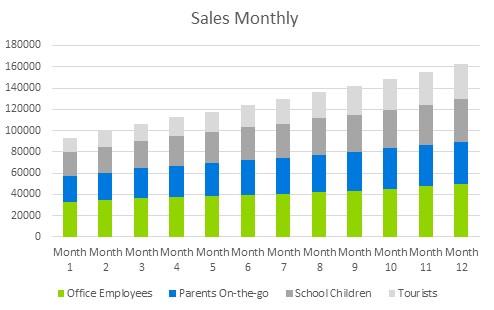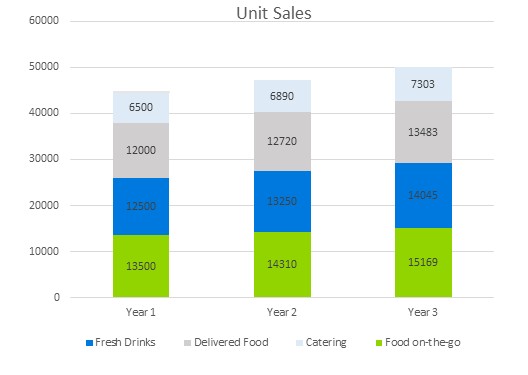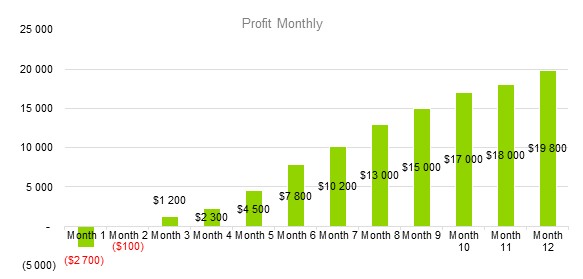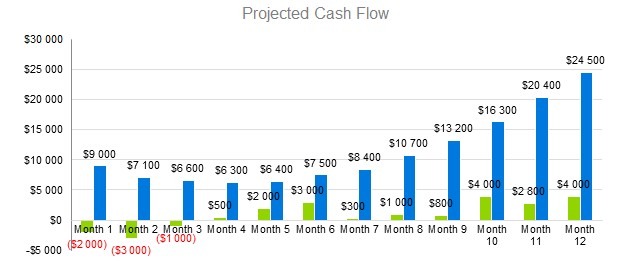Do you want to start a Food Truck business plan?
Do you want to learn how to write a business plan for a food truck? If it is the case, you are probably thinking about starting a food truck business. Well, the food truck business can be a great choice if you are invested in making delicious food items. The business requires very little investment and you don’t need any specific education for starting it.
A business plan for a food truck will contain every small and big detail about your startup ranging from the services it provides to the cost vs profit analysis.
Now, if you want to write a business plan, you have two options. You can either write the plan yourself or you can hire a business plan consulting service to handle everything for you.
In this blog, we are providing a business plan for Eat Out. You can learn about the basic components of an operational plan from here as well as from a spices business plan.
Executive Summary
2.1 About the Business
Eat Out will be a food truck business e owned and managed by Henry Gilman. The main idea behind the business is to provide on-the-go food options to people so that they don’t have to spend precious time commuting from one place to another. It will offer a wide variety of services and menu options so that it quickly becomes a favorite of a wide range of customers.
2.2 Management of Food Truck Company
This section will describe the food truck business plan executive summary. Thus, it will contain all the key takeaways of the whole plan. To ensure that the business plan for a food truck is perfect, it needs to contain all the details necessary to manage a food truck. This will comprise strategies for managing the truck transportation, menu options, locations, and financial analysis. All these aspects can be seen in detail from this sample business plan food truck.
To make sure that this business plan for food truck template had all the details to make Henry’s business a success, a business planning expert was also hired to oversee the listing and planning of resources.
2.3 Customers of Food Truck Company
The customer base of Eat Out will comprise the working class who doesn’t have enough time to search for good food in their day. The main customer groups of the business will include:
- Office Employees
- Parents-on-the-go
- School Children
- Tourists
2.4 Business Target
The main target of Henry’s Eat Out is to provide sustainable alternative food options to people who are often busy. The business also aims to occupy a considerable market share in the fast-food/ cart food market.
In this example business plan food truck, we are listing the financial targets that Eat Out wants to achieve within the first 3 years of operation.

Company Summary
3.1 Company Ownership and Management
As mentioned before, Eat Out will be owned and operated by Henry Gilman. As Henry has a considerable background and experience in management, he will act as the primary manager while the operations on the ground will be handled by the sub-operation managers hired by Henry.
3.2 Company History
Eat Out was ideated when Henry realized that many people, especially in the working class had to spend a considerable amount of time if they wanted to eat something healthy as the options were few and far. He saw the opportunity to bring nutritious and tasty food to people no matter where they are.
3.3 How the Food Truck company will be started
Step1: Look into the Market
The first step before you learn how to write a food truck business plan is to look into the market you are targeting. Henry wanted to target the residents and workers of New Orleans so he conducted market research to see if it was worth it. He then wrote a rough food truck start up business plan for the city. He was pleased to find out that there was a significant need for a food truck business in the area and hence decided to develop this food truck business plan sample pdf.
Step2: Plan the Business
Once he dug out the viability of the business, Henry had to plan out all the details of Eat Out including things like financial viability, operations, location, marketing, etc. For this purpose, Henry decided to look into all small start-ups in the area including an open frozen yogurt business to find out how they were conducting their operations.
Step3: Find a Truck
Next, Henry had to find a truck model that would perfectly fit his business needs. For this, he looked into as many food truck businesses as he could. He realized what he needed would require some customizations to the usual trucks. So he agreed upon a contract with a workshop business to get 3 trucks customized and ready for operations.
Step4: Select Location of Operations
Reading a free business plan template for a food truck made Henry realize that the location of a food truck was essential to the success of the business. Therefore, he scoped out different areas in New Orleans and decided on 6 locations where his food trucks would transition between morning and evening.
Step5: Marketing and Branding
Henry decided that he could get a jump start on business by setting up at least one of his food trucks at the local carnival area every day. This would not only bring him customers but also help him in his marketing efforts.

| Start-up Expenses | |
| Legal | $172,400 |
| Consultants | $0 |
| Insurance | $25,100 |
| Rent | $35,100 |
| Research and Development | $10,000 |
| Expensed Equipment | $52,200 |
| Signs | $3,400 |
| TOTAL START-UP EXPENSES | $298,200 |
| Start-up Assets | $271,400 |
| Cash Required | $181,000 |
| Start-up Inventory | $35,100 |
| Other Current Assets | $251,000 |
| Long-term Assets | $217,000 |
| TOTAL ASSETS | $955,500 |
| Total Requirements | $1,253,700 |
| START-UP FUNDING | |
| Start-up Expenses to Fund | $298,200 |
| Start-up Assets to Fund | $955,500 |
| TOTAL FUNDING REQUIRED | $1,253,700 |
| Assets | |
| Non-cash Assets from Start-up | $1,262,000 |
| Cash Requirements from Start-up | $175,000 |
| Additional Cash Raised | $50,000 |
| Cash Balance on Starting Date | $35,000 |
| TOTAL ASSETS | $1,522,000 |
| Liabilities and Capital | |
| Liabilities | $18,200 |
| Current Borrowing | $0 |
| Long-term Liabilities | $0 |
| Accounts Payable (Outstanding Bills) | $61,500 |
| Other Current Liabilities (interest-free) | $0 |
| TOTAL LIABILITIES | $79,700 |
| Capital | |
| Planned Investment | $1,253,700 |
| Investor 1 | $0 |
| Investor 2 | $0 |
| Other | $0 |
| Additional Investment Requirement | $0 |
| TOTAL PLANNED INVESTMENT | $1,253,700 |
| Loss at Start-up (Start-up Expenses) | $188,600 |
| TOTAL CAPITAL | $1,442,300 |
| TOTAL CAPITAL AND LIABILITIES | $1,522,000 |
| Total Funding | $1,253,700 |
Services
You can learn how to make a business plan for a food truck in a better way if you know which services you want to offer to your customers. Deciding on your services in the early phase helps you focus only on those areas that relate to your startup. Outlining a list of services or products offered by the business is a must even in shaved ice business plan i.e. the businesses whose services appear to be too obvious.
To ensure that he could plan his business well, Henry set out a list of services and products that his business would provide. Deciding on these services as part of his food truck park business plan enabled Henry to adequately organize the business idea for attracting investors.
If you want to develop a business plan, this food truck business plan template free can be a great guide for you. The services offered by Eat Out as listed by this food truck business plan example pdf include:
- Food On-the-Go
The biggest selling point of Eat Out is that it will provide mobile, quick, and healthy eating options to its customers. Some of the foods offered by Eat Out will include:
- Burgers
- Salads
- Wraps
- Meat & Rice Combos
- Catering
Eat Out will also provide catering services for different events. Customers can visit the website of Eat Out or any of the social media profiles to get catering services for events like parties, birthdays, and weddings. The food will be presented and served in beautifully-decorated food trucks.
- Delivery
Eat Out will also list itself on online food ordering services such as Uber Eats to that people can order from anywhere.
- Fresh Drinks
Note
Since drinks are an important part of every meal, therefore, Henry would also offer a range of hot and cold drinks to be served alongside meals.
Marketing Analysis of Food Truck Company
excellent work
excellent work, competent advice.
Alex is very friendly, great communication.
100% I recommend CGS capital.
Thank you so much for your hard work!
Writing a food truck business plan requires the collection of a lot of information about the target market. This market analysis can help identify the gaps and opportunities that are still unexplored. Moreover, it can help investigate the viability of a business in a particular market, and the challenges and competitions a business could face. Henry included all of this information in his mobile food truck business plan.
If you are looking for starting a food truck business plan, this business plan for food truck pdf can serve as a great guide. Henry laid out all the necessary market information for establishing a successful food truck business in his business plan food truck example.
According to this business plan template for food truck, the customer groups served by Eat Out will include:
5.1 Market Trends
According to Zippia, the market size of the food truck industry is about $1.16 billion as of 2021. The industry has been growing at a steady rate of 12.1% since 2016, making it one of the best businesses to invest in. People are always on the lookout for quick food options. In addition, nowadays, people are more towards eating healthy and nutritious as well.
5.2 Marketing Segmentation
The potential customer groups of Eat Out will be as follows:

5.2.1 Office Employees
Office employees in the New Orleans area will be the primary target groups for Eat Out. As office employees are continuously working, they need sustenance that is healthy and near, therefore, they will act as the main customers of our food trucks.
Business Plan for Investors
5.2.2 Parents-On-the-go
Parents are often tired of constantly taking care of kids and working full-time. Therefore, they sometimes need a good healthy food choice to feed not only their kids but also themselves. Henry decided to target this group of customers through a specific sales strategy.
5.2.3 School Children
Teenagers and young adults love walking around and having fun when free and Eat Out will provide them a great way to stay refreshed and sate their hunger.
5.2.4 Tourists
Tourists usually do not go to big hotels and restaurants while on vacation. For such people, food trucks are a primary source of nutrition throughout the day. Therefore, Eat Out trucks will locations that see an influx of tourists.
| Market Analysis | |||||||
| Potential Customers | Growth | Year 1 | Year 2 | Year 3 | Year 4 | Year 5 | CAGR |
| Office Employees | 35% | 46,100 | 55,320 | 66,384 | 79,661 | 95,593 | 10.00% |
| Parents On-the-go | 30% | 32,100 | 38,520 | 46,224 | 55,469 | 66,563 | 10.00% |
| School Children | 25% | 22,100 | 26,520 | 31,824 | 38,189 | 45,827 | 10.00% |
| Tourists | 10% | 18,100 | 21,720 | 26,064 | 31,277 | 37,532 | 11.00% |
| Total | 100% | 118,400 | 142,080 | 170,496 | 204,595 | 245,514 | 10% |
5.3 Business Target
- To provide a unique food option to people in New Orleans.
- To expand food options while maintaining quality and nutritional value.
- To expand services to more locations throughout the city.
- To gain a net profit of $20k/month by the end of the first year through 3 trucks.
5.4 Product Pricing
The prices of food options offered by Eat Out will be comparable to the prices charged by other food truck businesses in the area. However, the rates for special meals and delicacies will be a bit higher.
Marketing Strategy
The success of a business, especially a business in transit, like a food truck business depends on targeting and continuous marketing. The marketing strategies should be influencing but not intrusive.
Understanding the importance of good marketing, Henry looked into the food truck industry of New Orleans to add details to his business plan for food truck sample pdf. He looked into the market trends and compiled a list of the biggest competitors in his business plan food truck template.
To make a comprehensive food truck business plan, Henry also looked into other business plans such as a business plan for a lemonade company.
6.1 Competitive Analysis
The competitive advantages that Eat Out have over the market include:
- Versatile and healthier options as compared to other food truck businesses.
- Quick service to customers so they don’t need to wait for long.
- Food and drink options – all in one place.
- Delivery options for people who cannot make it to the food truck.
6.2 Sales Strategy
No business plan for a food truck is complete without a sales strategy. The advertisement techniques of Eat Out will be:
- We will advertise through word of mouth by having at least one truck in the main tourist attractions in the city.
- We will offer free delivery to the first 100 customers.
- We will advertise through all social media channels.
- We will decorate our food truck in various themes according to the ongoing national events and debates to get people’s attention.
6.3 Sales Monthly

6.4 Sales Yearly

6.5 Sales Forecast

| Sales Forecast | |||
| Unit Sales | Year 1 | Year 2 | Year 3 |
| Food on-the-go | 13,500 | 14,310 | 15,169 |
| Fresh Drinks | 12,500 | 13,250 | 14,045 |
| Delivered Food | 12,000 | 12,720 | 13,483 |
| Catering | 6,500 | 6,890 | 7,303 |
| TOTAL UNIT SALES | 44,500 | 47,170 | 50,000 |
| Unit Prices | Year 1 | Year 2 | Year 3 |
| Food on-the-go | $30.00 | $34.80 | $40.37 |
| Fresh Drinks | $30.00 | $34.80 | $40.37 |
| Delivered Food | $32.00 | $37.12 | $43.06 |
| Catering | $100.00 | $116.00 | $134.56 |
| Sales | |||
| Food on-the-go | $405,000.00 | $497,988.00 | $612,326.04 |
| Fresh Drinks | $375,000.00 | $461,100.00 | $566,968.56 |
| Delivered Food | $384,000.00 | $472,166.40 | $580,575.81 |
| Catering | $650,000.00 | $799,240.00 | $982,745.50 |
| TOTAL SALES | $1,814,000.00 | $2,230,494.40 | $2,742,615.91 |
| Direct Unit Costs | Year 1 | Year 2 | Year 3 |
| Food on-the-go | $10.00 | $11.00 | $11.55 |
| Fresh Drinks | $10.00 | $11.00 | $11.55 |
| Delivered Food | $12.00 | $13.20 | $13.86 |
| Catering | $40.00 | $44.00 | $46.20 |
| Direct Cost of Sales | |||
| Food on-the-go | $135,000.00 | $157,410.00 | $175,197.33 |
| Fresh Drinks | $125,000.00 | $145,750.00 | $162,219.75 |
| Delivered Food | $144,000.00 | $167,904.00 | $186,877.15 |
| Catering | $260,000.00 | $303,160.00 | $337,417.08 |
| Subtotal Direct Cost of Sales | $664,000.00 | $774,224.00 | $861,711.31 |
Personnel plan
Employee lists and average salaries are an essential part of food truck business description. These details are often part of every business plan including even gourmet food store business plan.
To know how many employees he will require to run Eat Out, Henry looked into many business plans for food trucks.
7.1 Company Staff
The employees required to sustain food truck business model of Eat out are:
- 1 Co-Manager to help in overall operations
- 5 Professional Chefs
- 2 Chef Assistants in each truck
- 1 Social Media Manager
- 4 Drivers for trucks
7.2 Average Salary of Employees
| Personnel Plan | |||
| Year 1 | Year 2 | Year 3 | |
| Manager | $30,000 | $33,000 | $36,300 |
| Professional Chefs | $245,000 | $269,500 | $296,450 |
| Chef Assistants | $125,000 | $137,500 | $151,250 |
| Social Media Manager | $62,500 | $68,750 | $75,625 |
| Drivers | $22,500 | $24,750 | $27,225 |
| Total Salaries | $485,000 | $533,500 | $586,850 |
Financial Plan
Writing a food truck business plan that contains accurate calculations and financial analysis is not an easy task. If you are not experienced at it, you are advised to hire the services of business consulting firms.
It is because a financial plan comprises complex transaction details and cash flows. It requires graphical analysis to accurately predict break-even as well as business ratios.
Even businesses whose financial management seems obvious such as vending machine business requires a proper vending machine business plan to direct all sales and operations toward achieving the monetary goals.
Despite having an extensive experience in management, Henry hired a financial analyst to develop a financial plan for a food truck business. Some segments of his business plan for food truck are produced below:
8.1 Important Assumptions
| General Assumptions | |||
| Year 1 | Year 2 | Year 3 | |
| Plan Month | 1 | 2 | 3 |
| Current Interest Rate | 8.12% | 8.20% | 8.26% |
| Long-term Interest Rate | 8.40% | 8.44% | 8.47% |
| Tax Rate | 24.03% | 24.21% | 24.60% |
| Other | 0 | 0 | 0 |
8.2 Break-even Analysis

| Break-Even Analysis | |
| Monthly Units Break-even | 5340 |
| Monthly Revenue Break-even | $132,500 |
| Assumptions: | |
| Average Per-Unit Revenue | $231.00 |
| Average Per-Unit Variable Cost | $0.62 |
| Estimated Monthly Fixed Cost | $163,800 |
8.3 Projected Profit and Loss
| Pro Forma Profit And Loss | |||
| Year 1 | Year 2 | Year 3 | |
| Sales | $1,814,000 | $2,230,494 | $2,742,616 |
| Direct Cost of Sales | $664,000 | $774,224 | $861,711 |
| Other | $0 | $0 | $0 |
| TOTAL COST OF SALES | $664,000 | $774,224 | $861,711 |
| Gross Margin | $1,150,000 | $1,456,270 | $1,880,905 |
| Gross Margin % | 63.40% | 65.29% | 68.58% |
| Expenses | |||
| Payroll | $485,000 | $533,500 | $586,850 |
| Sales and Marketing and Other Expenses | $145,000 | $148,000 | $156,000 |
| Depreciation | $2,300 | $2,350 | $2,500 |
| Leased Equipment | $0 | $0 | $0 |
| Utilities | $2,900 | $3,000 | $3,100 |
| Insurance | $2,100 | $2,100 | $2,100 |
| Rent | $2,900 | $3,000 | $3,200 |
| Payroll Taxes | $24,000 | $25,000 | $27,000 |
| Other | $0 | $0 | $0 |
| Total Operating Expenses | $664,200 | $716,950 | $780,750 |
| Profit Before Interest and Taxes | $485,800 | $739,320 | $1,100,155 |
| EBITDA | $485,800 | $739,320 | $1,100,155 |
| Interest Expense | $0 | $0 | $0 |
| Taxes Incurred | $97,160 | $147,864 | $220,031 |
| Net Profit | $388,640 | $591,456 | $880,124 |
| Net Profit/Sales | 21.42% | 26.52% | 32.09% |
8.3.1 Profit Monthly

8.3.2 Profit Yearly

8.3.3 Gross Margin Monthly

8.3.4 Gross Margin Yearly

8.4 Projected Cash Flow

| Pro Forma Cash Flow | |||
| Cash Received | Year 1 | Year 2 | Year 3 |
| Cash from Operations | |||
| Cash Sales | $51,000 | $55,080 | $59,486 |
| Cash from Receivables | $22,000 | $23,760 | $25,661 |
| SUBTOTAL CASH FROM OPERATIONS | $73,000 | $79,570 | $85,936 |
| Additional Cash Received | |||
| Sales Tax, VAT, HST/GST Received | $0 | $0 | $0 |
| New Current Borrowing | $0 | $0 | $0 |
| New Other Liabilities (interest-free) | $0 | $0 | $0 |
| New Long-term Liabilities | $0 | $0 | $0 |
| Sales of Other Current Assets | $0 | $0 | $0 |
| Sales of Long-term Assets | $0 | $0 | $0 |
| New Investment Received | $0 | $0 | $0 |
| SUBTOTAL CASH RECEIVED | $74,000 | $79,000 | $85,000 |
| Expenditures | Year 1 | Year 2 | Year 3 |
| Expenditures from Operations | |||
| Cash Spending | $42,000 | $42,000 | $45,000 |
| Bill Payments | $27,000 | $28,000 | $31,000 |
| SUBTOTAL SPENT ON OPERATIONS | $69,000 | $70,000 | $76,000 |
| Additional Cash Spent | |||
| Sales Tax, VAT, HST/GST Paid Out | $0 | $0 | $0 |
| Principal Repayment of Current Borrowing | $0 | $0 | $0 |
| Other Liabilities Principal Repayment | $0 | $0 | $0 |
| Long-term Liabilities Principal Repayment | $0 | $0 | $0 |
| Purchase Other Current Assets | $0 | $0 | $0 |
| Purchase Long-term Assets | $0 | $0 | $0 |
| Dividends | $0 | $0 | $0 |
| SUBTOTAL CASH SPENT | $69,000 | $74,520 | $80,482 |
| Net Cash Flow | $21,000 | $23,000 | $25,000 |
| Cash Balance | $27,000 | $30,000 | $33,000 |
8.5 Projected Balance Sheet
| Pro Forma Balance Sheet | |||
| Assets | Year 1 | Year 2 | Year 3 |
| Current Assets | |||
| Cash | $275,000 | $308,000 | $338,800 |
| Accounts Receivable | $24,000 | $26,880 | $30,213 |
| Inventory | $4,300 | $4,816 | $4,900 |
| Other Current Assets | $1,000 | $1,000 | $1,000 |
| TOTAL CURRENT ASSETS | $282,000 | $315,840 | $355,004 |
| Long-term Assets | |||
| Long-term Assets | $10,000 | $10,000 | $10,000 |
| Accumulated Depreciation | $19,400 | $21,728 | $24,444 |
| TOTAL LONG-TERM ASSETS | $24,400 | $27,328 | $30,744 |
| TOTAL ASSETS | $294,000 | $329,280 | $370,440 |
| Liabilities and Capital | Year 4 | Year 5 | Year 6 |
| Current Liabilities | |||
| Accounts Payable | $18,700 | $20,944 | $23,541 |
| Current Borrowing | $0 | $0 | $0 |
| Other Current Liabilities | $0 | $0 | $0 |
| SUBTOTAL CURRENT LIABILITIES | $19,000 | $21,280 | $23,919 |
| Long-term Liabilities | $0 | $0 | $0 |
| TOTAL LIABILITIES | $15,000 | $16,800 | $18,883 |
| Paid-in Capital | $30,000 | $30,000 | $31,000 |
| Retained Earnings | $53,000 | $57,770 | $63,547 |
| Earnings | $193,400 | $210,806 | $231,887 |
| TOTAL CAPITAL | $285,000 | $310,650 | $341,715 |
| TOTAL LIABILITIES AND CAPITAL | $300,000 | $329,280 | $370,440 |
| Net Worth | $293,400 | $319,806 | $351,787 |
8.6 Business Ratios
| Ratio Analysis | ||||
| Year 1 | Year 2 | Year 3 | INDUSTRY PROFILE | |
| Sales Growth | 7.25% | 8.03% | 8.90% | 3.00% |
| Percent of Total Assets | ||||
| Accounts Receivable | 9.21% | 10.20% | 11.31% | 9.80% |
| Inventory | 5.39% | 5.97% | 6.62% | 9.90% |
| Other Current Assets | 2.11% | 2.34% | 2.59% | 2.40% |
| Total Current Assets | 149.80% | 151.00% | 152.00% | 158.00% |
| Long-term Assets | 11.55% | 11.60% | 11.64% | 12.00% |
| TOTAL ASSETS | 100.00% | 100.00% | 100.00% | 100.00% |
| Current Liabilities | 4.90% | 4.94% | 4.98% | 4.34% |
| Long-term Liabilities | 0.00% | 0.00% | 0.00% | 0.00% |
| Total Liabilities | 7.59% | 7.65% | 7.72% | 7.38% |
| NET WORTH | 100.45% | 101.25% | 102.19% | 110.00% |
| Percent of Sales | ||||
| Sales | 100.00% | 100.00% | 100.00% | 100.00% |
| Gross Margin | 94.60% | 97.15% | 99.87% | 99.00% |
| Selling, General & Administrative Expenses | 93.56% | 96.09% | 98.78% | 97.80% |
| Advertising Expenses | 1.52% | 1.56% | 1.60% | 1.40% |
| Profit Before Interest and Taxes | 41.50% | 42.62% | 43.81% | 33.90% |
| Main Ratios | ||||
| Current | 34 | 35 | 36 | 32 |
| Quick | 33 | 33.8 | 34.645 | 33 |
| Total Debt to Total Assets | 0.18% | 0.18% | 0.17% | 0.40% |
| Pre-tax Return on Net Worth | 74.08% | 74.89% | 75.00% | 75.00% |
| Pre-tax Return on Assets | 96.30% | 101.12% | 106.17% | 111.30% |
| Additional Ratios | Year 1 | Year 2 | Year 3 | |
| Net Profit Margin | 33.56% | 34.60% | 35.67% | N.A. |
| Return on Equity | 55.80% | 57.53% | 59.31% | N.A. |
| Activity Ratios | ||||
| Accounts Receivable Turnover | 7.7 | 7.8 | 7.8 | N.A. |
| Collection Days | 100 | 100 | 100 | N.A. |
| Inventory Turnover | 32.4 | 34.02 | 35 | N.A. |
| Accounts Payable Turnover | 15.6 | 16 | 16.3 | N.A. |
| Payment Days | 27 | 27 | 27 | N.A. |
| Total Asset Turnover | 2.5 | 2.5 | 2.6 | N.A. |
| Debt Ratios | ||||
| Debt to Net Worth | -0.04 | -0.03 | -0.04 | N.A. |
| Current Liab. to Liab. | 1 | 1 | 1 | N.A. |
| Liquidity Ratios | ||||
| Net Working Capital | $244,000 | $257,664 | $272,093 | N.A. |
| Interest Coverage | 0 | 0 | 0 | N.A. |
| Additional Ratios | ||||
| Assets to Sales | 0.85 | 0.87 | 0.89 | N.A. |
| Current Debt/Total Assets | 1% | 0% | 0% | N.A. |
| Acid Test | 29 | 29.12 | 29.16 | N.A. |
| Sales/Net Worth | 2.1 | 2.2 | 2.2 | N.A. |
| Dividend Payout | 0 | 0 | 0 | N.A. |
FAQ
- What is a Food Truck Business Plan?
A food truck sample business plan is a document that contains all the information you need to start a successful food truck business. For details, you can see the business plan food truck example given above.
- What are the main types of food truck companies?
There are multiple food niches for which food truck business plans are written. These include:
- Barbeque
- Slider
- Tacos
- Pizza
- Drinks
- What are the main sources of revenues and expenses of a food truck business?
According to the business plan food truck sample above, the main sources of revenue in a food truck business include catering gigs, regular sales, and delivery services. The expenses are related to employees’ salaries, fuel costs, and truck maintenance costs. You can look into this business plan food truck for expenses and more details.
- How do you get funding for your food truck business plan?
You can get funding for your food truck business by developing a food truck business plan pdf that shows the feasbaility of your business idea. Then, you should approach the potential investors.
Download Food Truck Business Plan Sample in pdf




 (12 votes, average: 4.00 out of 5)
(12 votes, average: 4.00 out of 5)





Add comment
Comments (0)